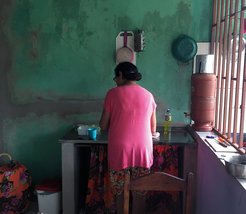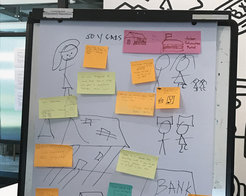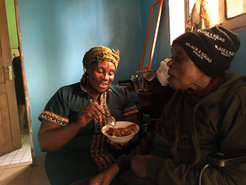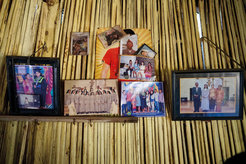
About the Research Group

Research Group Leader: Dr. Megha Amrith
‘Ageing in a Time of Mobility’ is a global and interdisciplinary project that investigates the interconnections between two key phenomena in the twenty-first century: ageing populations and global migration. These phenomena are often spoken about in parallel, where ageing populations are understood as being in situ, embodying stillness and stasis, rather than mobility. Yet in many ways, ageing and migration are highly interconnected, jointly bringing about new social, cultural and political-economic transformations in many regions across the world. Older groups of people are among refugee populations displaced by conflict and environmental change; they migrate across borders to build new lives in retirement communities; and even when they do not physically move, their lives may be profoundly transformed by the translocal mobilities of their family members. In many cases, they are not merely passive presences ‘left behind’, but agents of such transformations themselves.

As a global portrait of ageing in a time of mobility and displacement, the project adopts an ethnographic approach, allowing for a multi-sited understanding and analysis of these processes and connections in all their diversity, while moving beyond the largely demographic and medico- technical approaches that dominate interventions on ageing. It further explores how current forms of knowledge and expertise about ageing resonate, or come into tension with, the diverse lived experiences of ageing in a time of intensified mobilities (both within and across regions). It focuses on the mobilities of older populations in and from regions that are rapidly ageing, but that have been less visible in research and policy agendas, namely Asia, Africa and Latin America.

The research group addresses the following questions: how do translocal connections and mobilities uphold or reshape particular understandings and expectations of ageing? How do intergenerational practices of care circulate across borders? In increasingly diverse and unequal societies, how do older people navigate socio-cultural, religious and linguistic differences and boundaries; and how might such experiences enable new freedoms, or impose constraints for people who move in later life? What do the experiences of older generations tell us about the ethics of mobility and the changing character of social norms, expectations and institutions in these contexts?

Researchers will trace the multiple relationships between ageing and translocal mobility, including: ageing and forced displacement; migration to new retirement communities; the active role that older family members play in intergenerational care and decision-making processes; ageing and internal migration; ageing in diverse urban communities; as well as questions of return among migrants who have been abroad for a large part of their lives. Conceptually, the group explores themes of care, kinship, home, memory, citizenship, transnationality and inequality.
The project adopts an interdisciplinary approach, engaging the fields of anthropology, sociology, geography, history and migration studies. Our findings from in-depth fieldwork on the intersections between ageing and mobility will be shared through individual and collaborative academic outputs, as well as through creative audio-visual means for wider policy and public audiences.
For more information on the group’s research plans, please download working paper.



